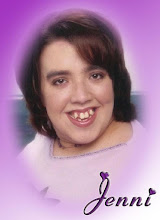 So I was in my reading class and my professor is a beliver in "outrageous" teaching. Now by outrageous he means stepping out of your comfort box and doing something out of the ordinary to reach the students. One of the things that my professor explained this year is that "outrageous" doesn't necessarily have to mean overboard. The picture to your left is of a lesson that I did with a field study classroom. I did an interactive write aloud that I had seen in my college class. What I did with them is tell them that they would be "reporters" for the school. They each had a press pass that was either clipped to them or worn around the neck. Afterwards some of the students asked the chosen child (sitting next to me) questions and we wrote a story based off of the questions asked.
So I was in my reading class and my professor is a beliver in "outrageous" teaching. Now by outrageous he means stepping out of your comfort box and doing something out of the ordinary to reach the students. One of the things that my professor explained this year is that "outrageous" doesn't necessarily have to mean overboard. The picture to your left is of a lesson that I did with a field study classroom. I did an interactive write aloud that I had seen in my college class. What I did with them is tell them that they would be "reporters" for the school. They each had a press pass that was either clipped to them or worn around the neck. Afterwards some of the students asked the chosen child (sitting next to me) questions and we wrote a story based off of the questions asked.This I have learned is a logical "outrageous" lesson. It would make sense to kindergarten students that the "press" part would connect to asking questions. A reporter askes questions. I also di d another lesson in this field study. I begged and pleaded with my teacher to do a Dr. Seuss lesson. I would be in school when his birthday rolled around. I just thought doing the activites that I found on his website would be fun.
d another lesson in this field study. I begged and pleaded with my teacher to do a Dr. Seuss lesson. I would be in school when his birthday rolled around. I just thought doing the activites that I found on his website would be fun.
 d another lesson in this field study. I begged and pleaded with my teacher to do a Dr. Seuss lesson. I would be in school when his birthday rolled around. I just thought doing the activites that I found on his website would be fun.
d another lesson in this field study. I begged and pleaded with my teacher to do a Dr. Seuss lesson. I would be in school when his birthday rolled around. I just thought doing the activites that I found on his website would be fun. Truthfully yeah they were fun. But there really wasn't a purpose behind the lesson. It was a lesson for the sake of it. And my "outrageous" teaching was bascially me pretending to be the cat in the hat while I read to them. I managed to keep "character" the entire time. But really was the lesson that outrageous or was it just me wanting an excuse to be silly?





